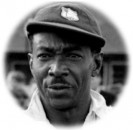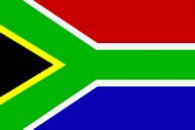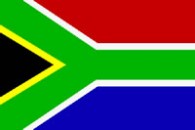Names such as Charles Kortright and Tibby Cotter who were both pre WWI, Jack Gregory, Harold Larwood and Learie Constantine who played between the wars, and then the multitude of quickies since then including Frank Tyson, Wes Hall, Charlie Griffith, Jeff Thompson and Michael Holding are often brought up. One of the more interesting characters included in this elite pace company is a relatively unknown West Indian called Roy Gilchrist, a player whose test career was over by age 24 and his place in cricket history clouded by both on and off-field indiscretions.
Stuart Wark - ARTICLES
When a country is first admitted into the family of test cricketing nations, they usually have a number of competent players without possessing the one or two truly great individuals who can lift the team from the bottom of the table. There are obviously exceptions to this rule, and Sri Lanka were fortunate to commence test cricket in the early 1980’s with a number of very experienced and successful batsmen.
The First and Second World Wars affected the careers of many great players from the cricketing powers of Australia and England. Individuals such as Don Bradman and Walter Hammond missed out on the opportunity to play many more test matches during their peak performing years, however they were still lucky enough to live in a country that played test cricket regularly before and after these interruptions.
It is always a great starting point for an argument to propose your view on who is the greatest batsman ever. Whilst Bradman would appear to have a clear right to this title, other people will put forward convincing counterclaims for players like Sachin Tendulkar, Jack Hobbs, Wally Hammond or Graeme Pollock.
Being the son of famous cricketer who captained their country has proved to be a major handicap to the careers of many players. Richard Hutton and Chris Cowdrey are but two examples of test cricketers who suffered greatly in comparison to their illustrious fathers. It does not always prove to be the case. Arthur William Nourse, who officially changed his name to Dave, was called the grand old man of South African cricket. A dour left handed batsman, Dave played forty five consecutive tests for South Africa from 1902 until 1925. He captained his country on a number of occasions and set numerous batting records, including being the first left hander to hit a hundred for South Africa, whilst at the other end of his career he become the oldest centurion for his country at the age of 42 years and 294 days. In spite of all of this though, perhaps Dave is best remembered through his son, Arthur Dudley Nourse, known by all and sundry as Dudley.
Around many a bar or kitchen table cricket lovers debate who is the best batsman in the world, the greatest all-rounder, the top spinner and so on. Sometimes the discussions turn to fielding, and the name of Colin Bland is regularly brought up. Bland’s reputation as a cover fielder was such that he almost solely remembered in this capacity. The fact that his fielding remains the primary legacy of his test career is perhaps a shame, as Bland was also a very good batsman. Nonetheless, it does underline what a magnificent fielder he was, as a Test average of nearly 49.06 places him near the elite level for international batsmen.











